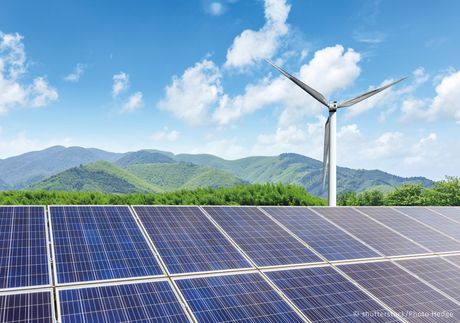With renewables due to account for the majority of Germany’s energy supply in the not too distant future, wind and solar power are set to become the main pillars of the energy system. Meanwhile, Russia’s war on Ukraine has made it plain that accelerating the expansion of renewable energy is also key to ensuring energy security. Yet although the need for urgent action is greater than ever, various barriers are still delaying or completely thwarting concrete projects to expand renewables.
The Academies’ Project ESYS (Energy Systems of the Future) is a joint initiative of the academies of science acatech, Leopoldina and the Union of the German Academies of Sciences and Humanities. The ESYS position paper “Accelerating the Expansion of Wind and Solar Power” sets out a series of policy options for enabling rapid growth. The paper identifies four key policy areas: reforming planning and licensing processes, stronger and earlier public participation, increasing the amount of designated land and ensuring that the entire energy system is systematically aligned with renewables.
Promoting participation, accelerating procedures
While the energy transition is frequently criticised for being expensive, slow, and out of touch with ordinary people, the public perception of wind and solar power is nevertheless largely positive, especially in locations where renewable installations have already been built. To resolve this contradiction, the experts have formulated a series of proposals that include a reform of planning and licensing processes. According to the interdisciplinary working group, incorporating the expansion targets established by policymakers into the formal planning process and introducing clear and consistent nature conservation criteria to ensure that planning decisions are legally watertight throughout Germany can help to accelerate planning processes and reduce the number of lengthy reports and lawsuits.
The experts also recommend statutory public participation as a means of unlocking citizens’ creative potential. According to Ellen Matthies, co-chair of the working group and Chair of Environmental Psychology at Otto von Guericke University Magdeburg, “At the moment, the only way for most citizens to get involved in these processes is through lawsuits. Transparency and public participation from an early stage would allow people to actively engage in shaping the place where they live and develop an in-depth understanding of the complex challenges. Ultimately, it’s about giving them the opportunity to identify positively with the changes.”
Making more land available, acting now for the future
The working group recommends a series of regulatory and economic measures to prevent the expansion of renewables from being held back by land availability issues. A statutory target for the amount of land made available for wind installations would help to ensure that sufficient land is designated. Mandatory installation of solar panels on suitable roofs is another possible measure. In addition, multiple space use solutions can help to ensure that the available space is used efficiently. Examples include agrivoltaics built over land that is also used for agriculture and the installation of solar panels on building façades.
Another barrier identified by the experts is the fact that the energy system is not yet optimised to cope with the growing percentage of volatile wind and solar power. Andreas Bett, co-chair of the working group and Director of the Fraunhofer Institute for Solar Energy Systems ISE, outlines the measures needed to address this challenge: “A large-scale switch to renewable electricity will require appropriate storage systems, changes to the current infrastructure and a new economic framework. It will also be necessary to promote sector coupling within the energy system. This will call for a paradigm shift towards a system that is coherently designed with renewables at its heart and is also better at coping with changes in the international environment.”




